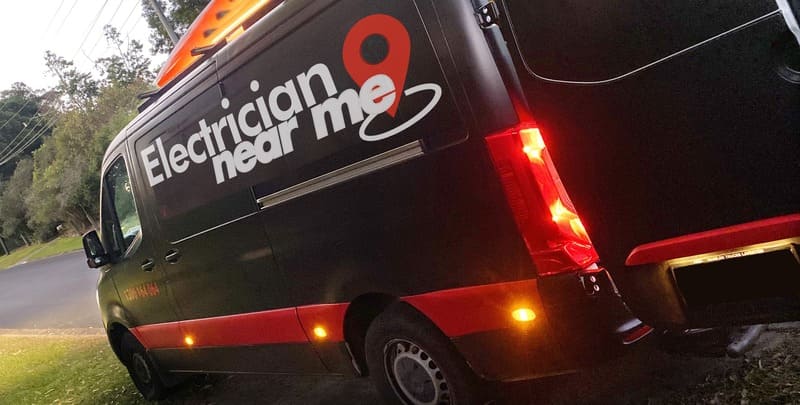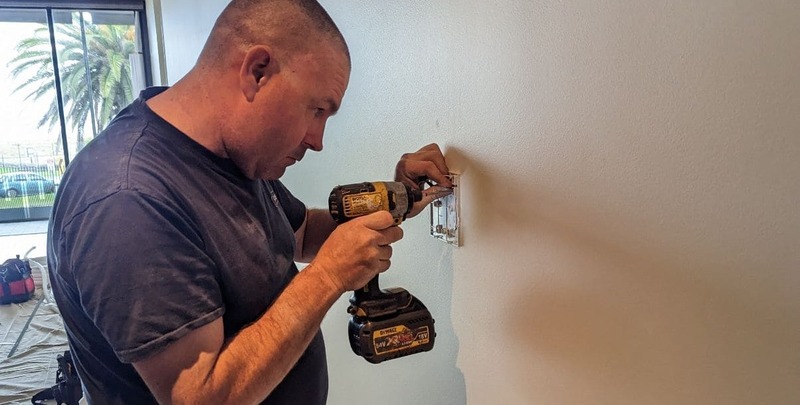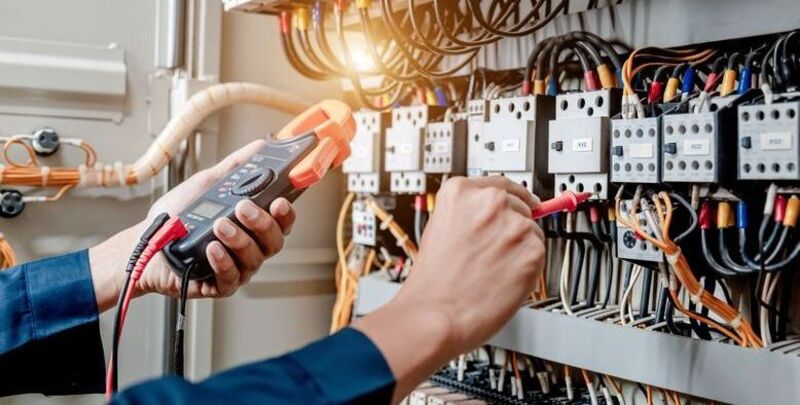
When Does a House Need Rewiring?
Maintaining a well-functioning electrical system is paramount for the safety and efficiency of any home. The intricate network of wiring, outlets, light fittings, and panels forms the backbone of our daily lives, powering everything from essential appliances to entertainment systems.
Embarking on a journey to understand when your house needs rewiring is crucial for the safety and efficiency of your electrical system. In this insightful blog, we explore the signs that indicate it’s time for a rewire and discuss essential measures, including home surge protectors’ role in ensuring a secure and resilient home environment.
However, like any system, old electrical wiring and components can age and deteriorate, leading to potential hazards. Recognising the signs that indicate a house needs rewiring is crucial for ensuring the safety and functionality of electrical appliances in your living space.
Signs Your House May Need Rewiring
Here are four of the tell-tale signs that you may have to make the big decision to have your home rewired soon.
1. Frequent Electrical Issues
One of the first indicators that your home may need rewiring is frequent electrical issues. If you regularly deal with tripped breakers, flickering lights, or unexplained power outages, it might be a sign of underlying wiring problems.
These issues often point to electrical problems, overloaded circuits, outdated wiring, or loose connections that need immediate attention.
2. Outdated Wiring
Older homes, while brimming with character, often harbour outdated electrical wiring and systems that can pose fire hazards and safety risks.
The critical characteristics of ancient home electrical faults and wiring include the presence of knob-and-tube wiring or aluminium wiring, which may no longer meet modern safety standards.
Recognising these signs is essential for pre-emptive action to avoid potential hazards such as domestic and electrical fires.
3. Burning Smell or Sparks
Never ignore the alarming scent of burning or the sight of sparks. These signs indicate potential dangers because of faulty wiring and electrical appliances that may overheat or experience a short circuit.
Ignoring these warning signals can lead to severe consequences, making it imperative to schedule an immediate inspection by a licensed and qualified electrician to assess and address the issue.
4. Frayed or Damaged Wiring
Take the time to visually inspect your wiring for any signs of damage or fraying. You can ask for professional help on these inspections.
Exposed frayed wires or visible damage can be a breeding ground for safety hazards.
Addressing these issues promptly is essential to prevent electrical shocks, fires, or serious consequences.

The Rewiring Process
This is when to call in the professionals. Let’s take a closer look at the process involved with upgrading your electrical system and making your home safe.
- Professional inspection: When signs of potential wiring issues arise, seeking the expertise of a licensed electrician is crucial. A professional inspection involves a thorough assessment of your entire electrical system. From identifying damaged wiring to checking the integrity of your electrical panels, the inspection lays the groundwork for a comprehensive rewiring plan.
- Planning and permitting: Planning for a rewiring project involves collaborating with professionals who can guide you. Obtaining the necessary permits ensures that the rewiring is compliant with local regulations. Working with electricians and obtaining permits provides a systematic and safe rewiring process.
- Upgrading electrical panels: Outdated electrical panels may need upgrading to meet the demands of modern electrical usage. An electrician will assess the capacity of your current panel and recommend upgrades if necessary. Ensuring the electrical installation of the new panel adheres to current safety standards is paramount for the overall success of the rewiring project.
- Replacing wiring and outlet: The core of the electrical rewiring process involves replacing old, damaged electrical wiring with newer, safer alternatives. This step also includes updating all electrical outlets and switches to meet safety and functionality standards. The meticulous replacement of these components ensures a reliable and safe electrical system.
- Installation of Ground Fault Circuit Interrupters: To enhance safety, installing Ground Fault Circuit Interrupters (GFCIs) is a crucial step in the rewiring process. GFCIs prevent electrical shocks by quickly cutting power and lighting circuits when they detect imbalances in the electrical flow. Place these in moisture-prone areas, such as kitchens, bathrooms, and outdoor spaces.
- Ensuring code compliance: Adhering to local electrical codes is non-negotiable during the rewiring process. Compliance ensures that the electrical system meets safety standards and regulations. Regular inspections play a vital role in confirming code adherence, providing homeowners an additional layer of assurance.
Call the Professionals for House Rewiring
When it comes to house rewiring, it is illegal to do it yourself unless you’re a qualified electrician. Seeking the expertise of licensed professionals is crucial for ensuring the project’s safety, efficiency and success.
Here’s how professionals can assist you throughout the entire electrical rewiring process:
- Thorough inspection: Professional electricians begin by comprehensively inspecting your home’s electrical system. It involves assessing the condition of wiring, outlets, switches, and electrical panels. Through this inspection, they can identify potential hazards, outdated components, or areas needing immediate attention.
- Customised planning: Based on the inspection findings, professionals work with you to create a customised rewiring plan tailored to your home’s needs. This plan considers factors such as the size of your home, its electrical demands, and any unique considerations.
- Obtaining permits: Rewiring a house typically requires obtaining permits from local authorities to ensure compliance with building codes and regulations. Professional electricians handle the permitting process on your behalf, ensuring all necessary paperwork is completed correctly and submitted promptly.
- Upgrading electrical panels: To accommodate modern electrical demands and ensure safety, consider upgrading outdated electrical panels. Electricians can assess the capacity of your current panel and recommend appropriate upgrades to meet your household’s needs.
- Replacing wiring and outlets: One of the primary tasks during house rewiring is replacing old, damaged, or outdated wiring with newer, safer alternatives. Professional electricians have the expertise and tools to safely remove old wiring and install new wiring throughout your home. They also replace outdated outlets and switches with modern, code-compliant options.
- Installation of safety features: Professional electricians ensure the installation of essential safety features during the rewiring process. It includes the placement of GFCIs in areas prone to moisture, such as kitchens, bathrooms, and outdoor spaces, to prevent electrical shocks.
- Ensuring code compliance: Compliance with local electrical codes and regulations is paramount for the safety and legality of the rewiring project. Professional electricians are well-versed in current building codes and ensure that all work meets or exceeds these standards. They also schedule and coordinate inspections to verify code compliance.
- Testing and verification: Once the rewiring is complete, professional electricians conduct thorough testing to ensure that all electrical components function correctly and safely. It includes testing outlets, switches, circuits, and other electrical devices to verify proper operation.
- Documentation and warranty: Professional electricians provide documentation of the rewiring project, including permits, inspection reports, and any warranties on materials or workmanship. You may need this valuable documentation for future reference and potential insurance claims.
Professionals play a vital role in house rewiring by providing expert electrical services, safety assurance, compliance with regulations, and peace of mind throughout the house rewire process.
Their knowledge, experience, and attention to detail ensure your home’s electrical system is safe, reliable, and up to current standards.

Prioritise Electrical Safety
In conclusion, recognising the warning signs that your house needs rewiring is essential for maintaining a safe and functional living environment.
Professional inspection, meticulous planning and adherence to electrical codes are the pillars of a successful home rewiring project.
As a homeowner, prioritising electrical safety through regular maintenance and promptly addressing issues will protect your property and ensure peace of mind for you and your family.
Remember, electrical safety is a responsibility we all share in creating a secure home.
Please note: This information is provided for advice purposes only. Regulations differ from state to state, so please consult your local authorities or an industry professional before proceeding with any work. See our Terms & Conditions here.